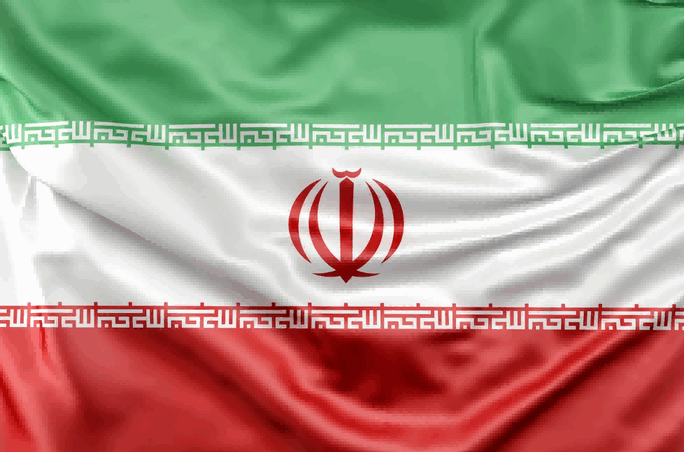 Export News
Export News
 2023-06-19
2023-06-19

Iran's oil exports soar
Iran's exports have soared to the highest level in nearly five years, Bloomberg said, citing data from market analysis provider Kpler, global strategic energy consultancy SVB Energy International, FACTS Global Energy Group (FGE) and the International Energy Agency, "cementing its re-emergence on the geopolitical stage while posing a risk to the fragile global crude oil market."
OPEC+ countries have repeatedly cut production to limit supply and rein in plunging prices.
"Iran's crude exports broke it last month," said Homayoun Falakshahi, senior analyst at Kpler. "Iranian crude is very interesting for those who are willing to take a chance on buying it."
Bloomberg cited Paris-based International Energy Agency estimates that crude oil production has doubled since last fall, reaching 1.6 million barrels per day in May, despite continued U.S. sanctions, and cited Paris-based IEA estimates that production has reached 2.9 million barrels, the highest level since late 2018 reported, "Advisers SVB Energy, Petro-Logistics SA and FGE believe production is even higher and could exceed 3 million barrels per day."
Iranian oil's main customers
Most of Iran's crude oil flows to China, the world's leading energy importer. Several European customers, including Germany, Spain and Bulgaria, also import oil from Iran.
While tanker tracking shows China remains Tehran's main buyer, official figures show no oil imports from Iran last year. In its place, purchases from Malaysia have soared, with Iranian cargoes often delivered via so-called "dark fleet" tankers that deactivate transponders to avoid detection of transfers to another vessel, thus obscuring the origin of the cargo.
This practice has been underway since 2019, when the United States imposed comprehensive third-party sanctions on Iranian crude exports.
The regime is trying to salvage its battered economy by all means available, including mending relations with regional rivals Saudi Arabia, Bahrain and Egypt; fostering ties with China; and, most recently, engaging in tentative behind-the-scenes diplomatic efforts to de-escalate the situation with Washington and the U.N. nuclear watchdog International Atomic Energy Agency.
However, the extra sales have not translated into concrete results of 70 percent inflation, plummeting national currencies and popular discontent, manifested in periodic protests and strikes across the country.
Bloomberg quoted Greg Blue, an analyst at consulting firm Eurasia Group, as saying, "China's willingness to support Iran by accepting its sanctioned oil is a sign of a slight improvement in Iran's relationship with China." He added that "all of this supports the view that Iran's position is improving while it moves forward with normalization with other regional countries," especially given that Beijing itself brokered a detente between Tehran and Riyadh, a rapprochement seen as Saudi Arabia's favorable to China.
U.S. sanctions failing?
Tehran's oil exports have been restricted since former U.S. President Donald Trump pulled out of the 2015 nuclear deal in 2018 and reimposed sanctions aimed at curbing oil exports and Iranian government-related revenues.
Even so, exports have grown during the tenure of his successor, President Joe Biden. Iranian and Western officials say the U.S. is holding talks with Iran to work out steps that could limit its nuclear program.
"Sanctions are in place, but they may not be fully implemented or monitored," said SVB's Sara Vakhshouri. She has previously said that no tough crackdown or action has been taken against Iran's oil exports during Biden's tenure.
The recently released data is the latest sign that U.S. sanctions against Iran have failed to cut the country's oil revenues to zero, a goal often cited by previous and current U.S. administration officials.
In May, senior Republican U.S. Senator Lindsey Graham acknowledged the ineffectiveness of unilaterally imposed sanctions against Iran. Graham slammed the Biden administration for failing to stop Iran's oil exports.
"The Iranians are making more money under sanctions, not less, and China is the biggest reason we're not doing anything about it," he reportedly said. "In addition, all of these supplies are in the dark market and there is no transparency, so they are not reflected in the official global supply and export data."
A State Department spokesman said all Iran sanctions authorities remain in effect. "We will not hesitate to use all of our available sanctions authorities to take action against sanctions evaders," the spokesman said.
Category
Leave Message for Demo Request or Questions


 T-info
T-info T-discovery
T-discovery

 My
Tendata
My
Tendata Market Analysis
Market Analysis Customer
Development
Customer
Development Competitor
Monitoring
Competitor
Monitoring Customer Relationship
Customer Relationship





































































































































